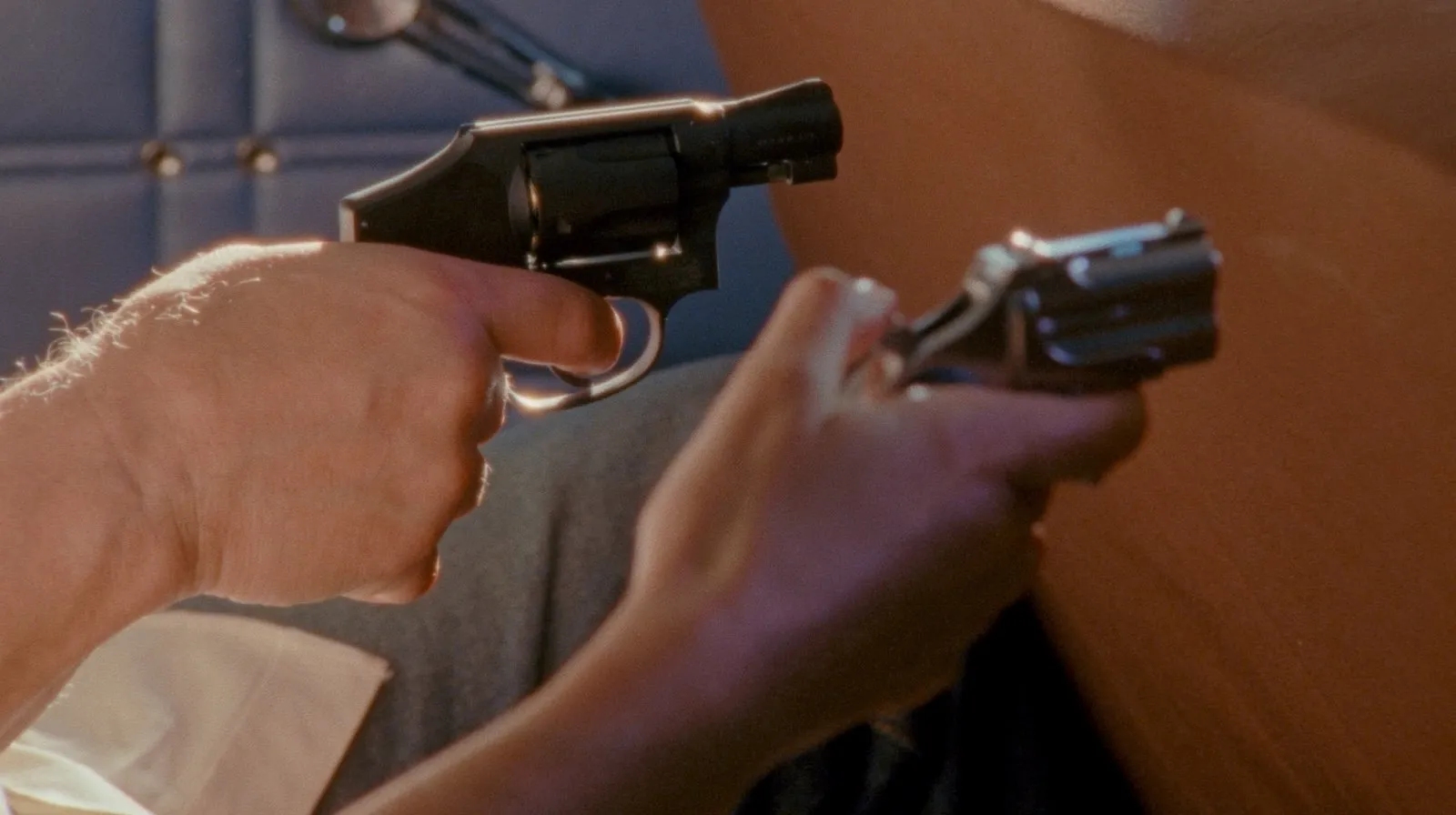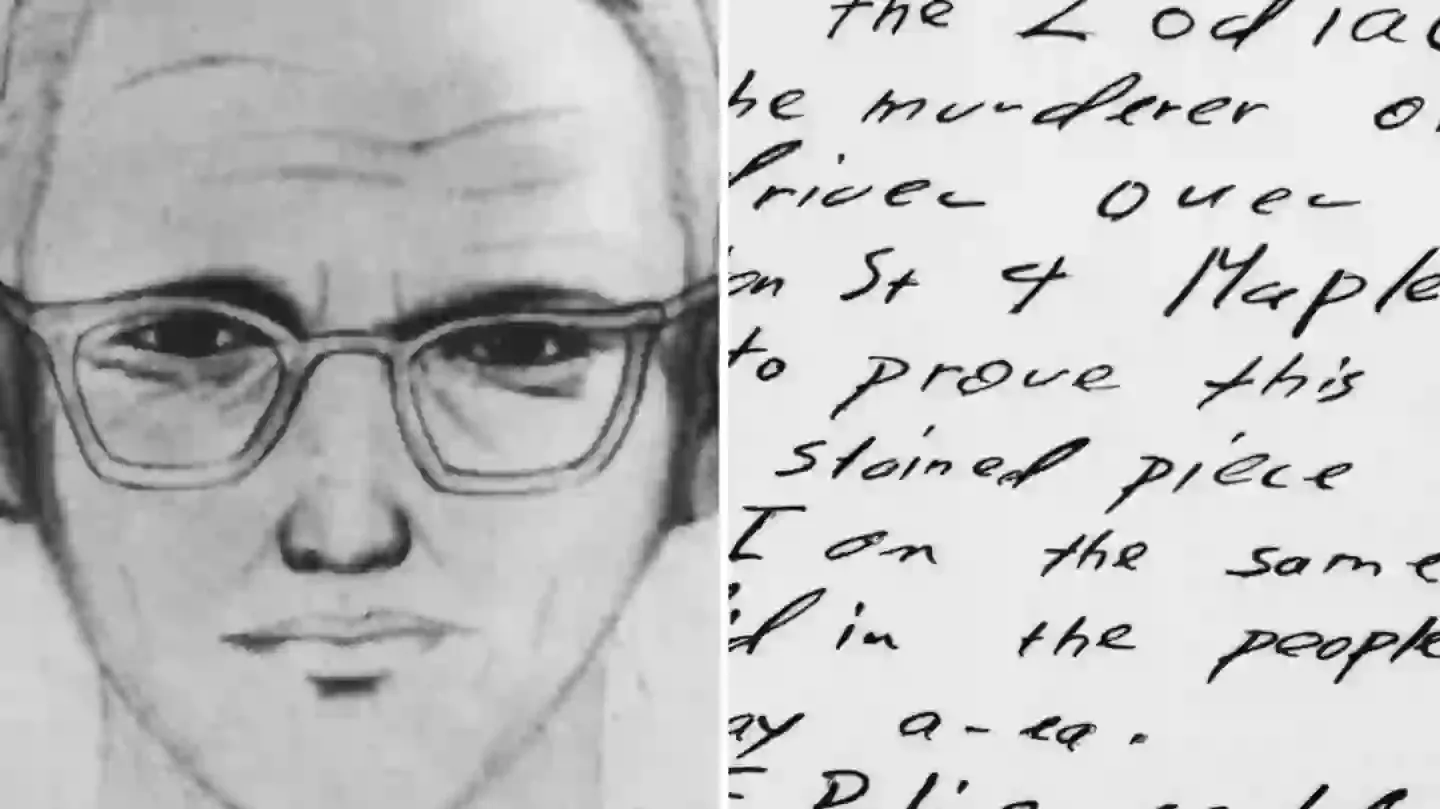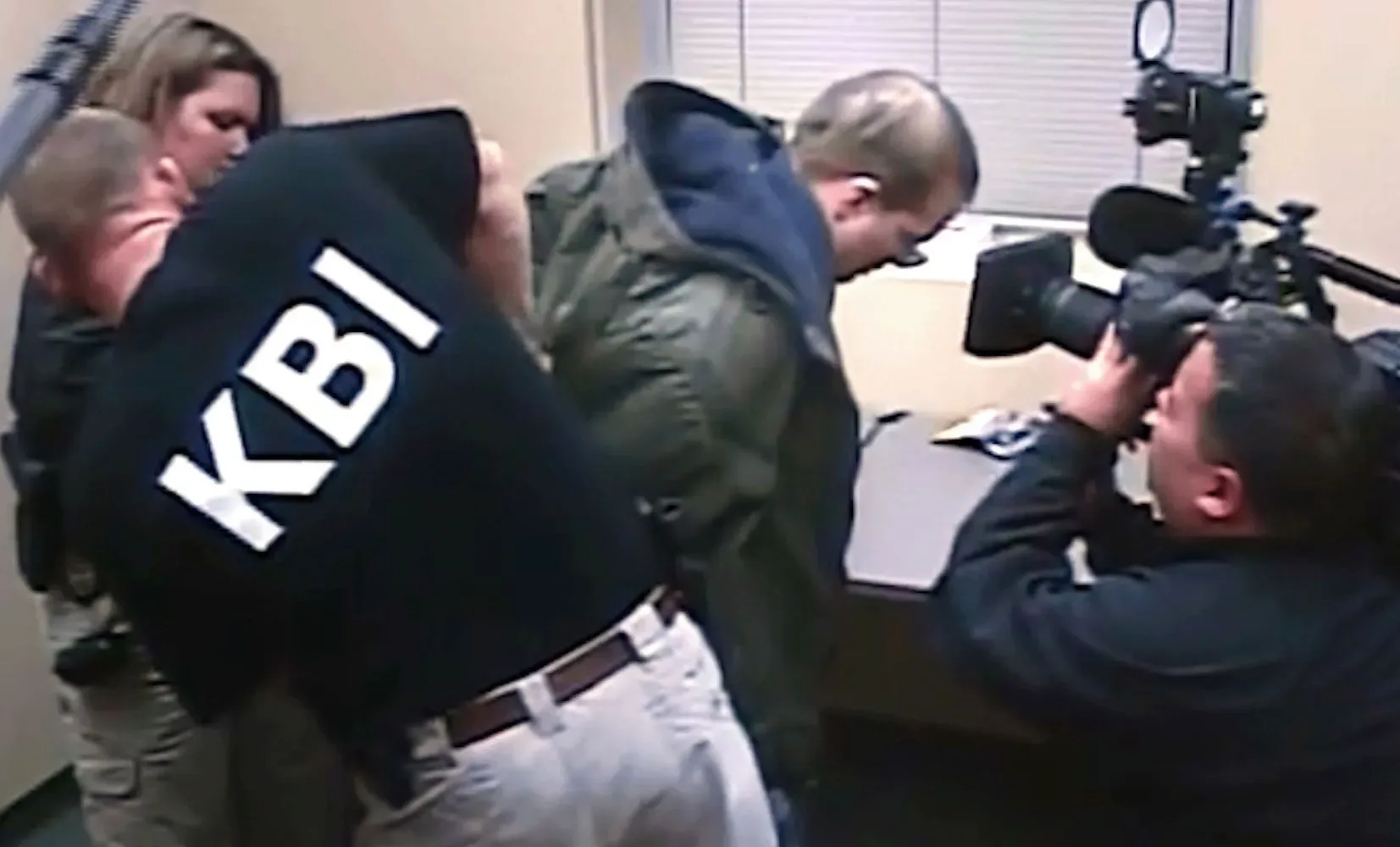Charlie Shackleton’s Zodiac Killer Project offers a refreshing twist on the typical true-crime documentary format. What might initially seem like just another exploration of one of America’s most infamous unsolved murder cases is, in fact, an intellectual and self-aware meditation on the genre itself.
Shackleton, known for his previous works that dissect genre conventions—such as Fear Itself and Beyond Clueless—takes a step back from the Zodiac case to examine the very tropes and mechanics that make these kinds of documentaries so compulsively watchable.
At the heart of Zodiac Killer Project is Shackleton’s failed attempt to adapt Lyndon E. Lafferty’s book, The Zodiac Killer Cover-Up: The Silenced Badge, into a true-crime documentary. However, when Lafferty’s estate revoked the rights to the book, Shackleton transformed his frustration into an exploration of the creative process itself, while cleverly sidestepping the legal issues that blocked him.
This documentary, rather than offering yet another recounting of the Zodiac Killer’s grisly exploits, deconstructs the familiar conventions of true-crime filmmaking—dissecting the stock footage, dramatic recreations, and B-roll inserts that populate these films.
What makes Shackleton’s approach so captivating is his ability to blend analysis with humor, never veering into cynical mockery but instead offering an insightful critique of how the true-crime genre manipulates audiences. His commentary is laced with wit, inviting viewers to reflect on the very formulas that make such content so appealing while encouraging them to see beyond the surface-level thrills of the genre. This balance of intellectual engagement and accessible humor creates an experience that is as thought-provoking as it is entertaining.
The Creative Collapse: Shackleton’s Meta-Narrative and the Anatomy of a Documentary
In Zodiac Killer Project, Charlie Shackleton deftly pivots from a conventional true-crime investigation to an exploration of the filmmaking process itself. Initially set to adapt Lyndon E. Lafferty’s controversial book The Zodiac Killer Cover-Up: The Silenced Badge into a documentary, Shackleton faced an unexpected setback when the rights to the book were revoked.
Instead of abandoning the project, Shackleton leaned into the creative failure, crafting a documentary about the film that never came to be. This shift in focus turns what could have been a conventional recounting of a notorious case into a self-reflexive commentary on the construction of narrative and genre itself.
The film’s structure, built around Shackleton’s candid voiceover, takes a behind-the-scenes approach, allowing viewers to witness the process and frustrations of a would-be documentary that crumbled under its own ambitions. Shackleton’s voice, often infused with dry humor, narrates the journey from the intended film to this final product, which becomes an examination of how documentary conventions function.
Rather than offering another dry retelling of the Zodiac case, Shackleton dissects the genre’s mechanics—the evocative B-roll shots, the ominous slow-motion “backtors,” the re-creations—all while sharing his own unmet vision. The film becomes a commentary on the expectations imposed upon the genre and the machinery behind its creation.
What makes Shackleton’s approach so engaging is the playful, self-deprecating tone he adopts. His commentary is laced with humor, but it never undercuts the film’s deeper critique of true-crime storytelling. He pokes fun at the genre’s overuse of familiar tropes, yet the humor feels grounded in a genuine admiration for the form.
Shackleton’s ability to combine sharp analysis with an accessible, witty style not only makes his critique enjoyable to watch but also invites viewers to reflect on how these conventions have become ingrained in the public’s perception of true crime. The film strikes a delicate balance, being both a critique and a celebration of the genre, as it invites viewers to question their own relationship with the stories they consume.
Unmasking the Formula: Shackleton’s Dissection of True-Crime Tropes
Charlie Shackleton’s Zodiac Killer Project is as much a study of genre mechanics as it is a commentary on one of the most gripping, yet ethically ambiguous, storytelling modes: the true-crime documentary. With an astute eye, Shackleton deconstructs the familiar conventions that have become ubiquitous in these films, turning what could have been another retelling of a notorious case into an engaging exploration of the medium’s methods.
One of the key conventions Shackleton critiques is the over-reliance on “evocative B-roll”—those atmospheric, often unnecessary shots meant to enhance the mood. In true-crime docs, these clips are typically disconnected from the narrative yet serve to suggest a mood of danger or mystery: flickering lights, shadowy streets, abandoned locations. Shackleton doesn’t simply call them out as cliché but uses them to his advantage, pointing out their effectiveness while also questioning their authenticity.
Similarly, the use of “backtors,” or actors filmed only from behind to recreate key moments, is a visual shorthand commonly seen in these documentaries. By poking fun at the technique, Shackleton exposes how these reenactments, though designed to add gravitas, often dilute the gravity of real events by oversimplifying or sensationalizing them.
Shackleton also offers a thoughtful analysis of why these tropes continue to be so effective, particularly the repetitiveness of true-crime media. The allure lies not just in the narrative but in the psychological satisfaction of predictability. Viewers know what to expect—ominous music, darkened streets, and chilling revelations—and yet they return, lured by the tantalizing tension between the familiar and the unknown.
This pattern taps into our primal curiosity about violence and justice, an obsession with understanding the minds of criminals while we try to solve the unsolvable. Shackleton digs into this fascination with eerie precision, exploring the psychological pull of these narratives while also questioning the ethical ramifications of repeatedly commodifying real-life suffering.
Ethically, Shackleton’s commentary is just as incisive. The film subtly critiques the often-blurry line between entertainment and exploitation in the true-crime genre. By referencing documentaries like The Jinx and Paradise Lost, he highlights how filmmakers sometimes push moral boundaries in their pursuit of dramatic payoff, raising questions about the ethics of manipulating tragedy for the sake of compelling television. Shackleton, in his self-aware way, acknowledges the fine balance between generating suspense and distorting the facts, leaving viewers to question how much they are willing to consume for the sake of entertainment.
The Art of the Fail: Shackleton’s Creative Struggles and Transformative Innovation
At the heart of Zodiac Killer Project lies a fascinating exploration of creative constraints—how an artist can transform frustration into innovation. Originally, Charlie Shackleton set out to adapt Lyndon E. Lafferty’s book The Zodiac Killer Cover-Up: The Silenced Badge into a traditional true-crime documentary.
The book, which focuses on Lafferty’s theory about the Zodiac Killer’s identity, presented an intriguing yet highly cinematic narrative. Shackleton envisioned a film that would not only delve into Lafferty’s investigation but also dramatize key moments, immersing viewers in the process of uncovering long-unsolved mysteries. However, when the rights to the book were unexpectedly revoked, Shackleton was left with a major creative roadblock—one that would ultimately shape the unconventional documentary that followed.
Instead of abandoning the project, Shackleton’s response to this setback was to reframe the documentary entirely. The restrictions imposed by the loss of the rights led him to pivot from a direct adaptation to a self-reflexive film about the documentary that never was.
Shackleton cleverly sidestepped copyright issues by focusing on the broader elements of Lafferty’s investigation, recounting the key moments of the story while acknowledging that many details had to be either omitted or altered. This transformation from a straightforward true-crime documentary to an examination of the filmmaking process itself highlights Shackleton’s ability to embrace limitations rather than be stifled by them.
What could have been a bitter tale of creative failure instead became an opportunity for Shackleton to innovate. The film’s narrative structure, which consists of a series of “what could have been” moments, is an apt metaphor for the chaos and absurdity often inherent in true-crime investigations.
Shackleton weaves his own frustration into the fabric of the documentary, using it to critique not just the Zodiac case, but the very conventions that have come to define the genre. Through this creative failure, Shackleton’s film not only explores the idea of a mystery left unresolved, but also turns that uncertainty into an inventive narrative strategy that mirrors the disjointed, often elusive nature of the crimes themselves.
Shackleton’s ability to turn frustration into a unique form of artistic expression reveals a deeper, often overlooked truth about the filmmaking process—the chaos of creation can yield moments of brilliance, especially when limitations are embraced as part of the artistic journey.
Shackleton’s Performance: The Director as Both Creator and Critic
In Zodiac Killer Project, Charlie Shackleton wears many hats—both as the filmmaker and as a subject of his own story. His role as narrator is crucial to the film’s tone, and he brings a casual, unscripted energy that makes the film feel remarkably personal and authentic.
Shackleton’s improvisational delivery contributes to the film’s charm, blurring the lines between a documentary and a commentary on the very nature of documentary filmmaking. It’s a style that invites viewers to feel as though they are part of an intimate conversation, rather than passive observers of a tightly controlled narrative.
His willingness to laugh at his own missteps, or openly acknowledge where his plans didn’t come to fruition, reinforces the self-aware nature of the film. It’s this honesty about the process—and about the artificiality inherent in traditional documentary formats—that adds depth to his critique of the genre.
The meta-narrative at play is one of the film’s most compelling aspects. Shackleton’s constant presence as both the director and the subject creates an intriguing dynamic, as viewers are not only guided through the behind-the-scenes journey of a failed project, but also witness Shackleton’s own reactions to the collapse of his original vision.
This allows the film to function as both a narrative of thwarted artistic ambition and a self-reflective commentary on the act of creation itself. By engaging directly with his own process, Shackleton opens up a space where the audience is not just watching a documentary about the Zodiac Killer but is also observing the filmmaker’s struggle with the genre’s conventions, his creative frustrations, and the way these elements all converge.
The film’s layering of creator and creation—filmmaker and documentary—adds a level of complexity that goes beyond typical genre fare. Shackleton doesn’t just dissect the true-crime format; he places himself within it, inviting the audience to reflect on the very nature of storytelling, its limitations, and its potential for reinvention.
The Visual Language of Absence: How Zodiac Killer Project Uses Minimalism to Create Unease
Shackleton’s Zodiac Killer Project stands out visually in a genre where flashy dramatizations and staged reconstructions often dominate. Instead of leaning into typical true-crime tropes of reenactments and overly stylized imagery, Shackleton opts for a minimalist aesthetic that amplifies the film’s underlying themes of uncertainty and ambiguity.
The sparse locations—empty streets, abandoned storefronts, desolate parking lots—become central to the atmosphere. These voids in the film’s visual landscape evoke a sense of isolation and disquiet, effectively capturing the chilling, unresolved nature of the Zodiac case without the need for the traditional sensationalism often associated with crime documentaries. The emptiness of these locations, coupled with the stillness of the shots, invites the audience to project their own sense of mystery onto the frame, making the unknowns of the Zodiac Killer even more elusive.
Shackleton also makes clever use of stock footage and found material from other true-crime documentaries, turning what would typically be filler into a form of critique. By incorporating these familiar images—dark alleys, police tape, grainy reenactments—he highlights how these overused cinematic devices have become shorthand for the genre, often serving to manipulate the audience’s emotions more than actually providing insight.
This “cinematic sampling” plays into the film’s self-reflective tone, drawing attention to the artifice behind these images while still using them to propel the narrative. The juxtaposition of these clips with Shackleton’s narration, where he humorously deconstructs their purpose and meaning, adds a layer of irony and self-awareness to the proceedings.
The film’s deliberate pacing further enhances its thematic exploration of the Zodiac case. By allowing long pauses between moments, Shackleton mirrors the unresolved tension that defines the case. The visual and auditory emptiness in these moments is not just an aesthetic choice—it reflects the broader cultural obsession with unsolved mysteries.
In many ways, these empty spaces serve as a metaphor for the mystery itself: no answers, just the void, stretching endlessly. Shackleton’s ability to use visual stillness to capture the essence of the case’s elusiveness deepens the emotional impact, leaving viewers with a lingering sense of unease and wonder.
The Legacy of Zodiac Killer Project: A Critical Reflection on True-Crime and Filmmaking
Zodiac Killer Project arrives at a time when the true-crime genre is omnipresent in the media landscape, fueled by the insatiable appetite for binge-worthy, often sensationalized content. The rise of streaming platforms and the endless array of true-crime documentaries have made the genre both ubiquitous and formulaic.
Shackleton’s film serves as a timely and intellectual counterpoint to this flood of content, providing not just another recounting of the Zodiac case but a self-aware deconstruction of the genre’s conventions. By dissecting the tropes that define true-crime storytelling—like dramatic recreations, evocative B-roll, and the reliance on mystery—it forces viewers to confront the ethical and emotional manipulation that underpins so many of these documentaries.
In an era where audiences consume true-crime content for both entertainment and catharsis, Zodiac Killer Project offers a much-needed pause, prompting viewers to question the boundaries between real-life tragedy and voyeuristic entertainment.
In terms of Shackleton’s broader body of work, Zodiac Killer Project feels like a natural evolution. Known for his playful yet critical takes on genre conventions, as seen in his earlier films like Fear Itself and Beyond Clueless, Shackleton’s work has consistently engaged with the formal structures of filmmaking. With Zodiac Killer Project, Shackleton further refines his ability to balance humor, critique, and intellectual depth.
This film not only critiques the true-crime genre but also reflects Shackleton’s own frustrations as a filmmaker, turning those frustrations into a rich, multi-layered narrative. The film, while intellectually engaging, also has the potential to resonate beyond niche audiences, offering a deeper look at a genre that continues to dominate public discourse. In this way, Shackleton’s film might become a significant touchstone for how we engage with true-crime media in the future.
The Review
Zodiac Killer Project
Zodiac Killer Project is a refreshing, self-aware exploration of the true-crime genre, offering both a critique and a playful dissection of its conventions. Shackleton's minimalist approach, combined with his witty, unscripted narration, provides a deeply engaging experience that invites reflection on the ethics and structure of true-crime storytelling. While it may not offer new revelations about the Zodiac case itself, its meta-narrative and intellectual depth make it a standout within a genre that often prioritizes entertainment over substance. Shackleton's unique take elevates the project beyond typical fare.
PROS
- Unique, self-reflexive approach to true-crime documentary.
- Minimalist aesthetic enhances the atmosphere and emotional impact.
- Shackleton’s witty, unscripted narration adds authenticity and charm.
- Minimalist aesthetic enhances the atmosphere and emotional impact.
- Clever use of stock footage and cinematic sampling critiques genre conventions.
- Thought-provoking exploration of the ethics of true-crime media.
CONS
- May not appeal to those looking for a traditional true-crime documentary.
- Focus on deconstruction might overshadow the Zodiac case itself.
- Some viewers may find the pacing slow or the humor too dry.






















































